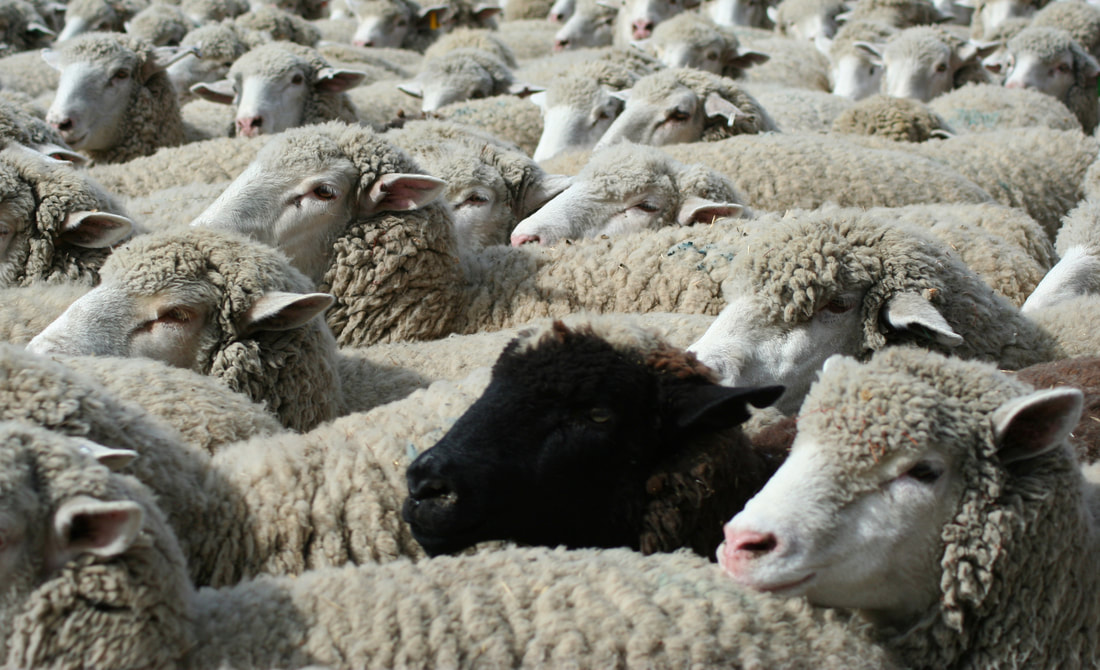|
We have all heard of the term, “black sheep” of the family. It is only natural to want to be accepted and to belong and when we feel different or shunned because of our differences from others it can be very stressful. Witness the bullying that takes place on the internet, peer pressure to conform, the power that fashion and the media leverage on society to live up to certain standards we are beckoned to follow. It can be extremely difficult just to stand up to others for the sake of integrity, to be ourselves. But when one feels that somehow one is fundamentally different from others, certain fears are evoked that might include being ostracized, being teased and made fun of, and feeling inferior or inadequate.
Ugly Duckling Syndrome The Ugly Duckling is a fairy tale written by Hans Christian Andersen, a Danish poet and author, in the 19th century, about a homely little bird who suffers abuse from others around him until he grows into a beautiful swan. The story won wide acclaim because it resonates with a fairly universal theme in families and society that says we are not necessarily the person or individual we seem to be as judged by others. More than this we carry within us the potential to become more than what any of us might have dreamed possible. There is another message in the Ugly Duckling Syndrome story beyond the idea that being different carries within itself the potential for transformation. And that is that by virtue of being different we may possess a greater potential to be elevated beyond the ordinary. Just as in natural selection a mutation increases the likelihood that either a failure of adaptation will occur or that a new variant has emerged that is superior to what has come before. Or one might explain the transformative power of being different as deriving from the psychological pain and suffering being different causes from which one may draw inspiration and motivation to rise above the judgment and ostracism differentness evokes from others. Normality In Psychotherapy In psychology as in society there has existed a bias to extol the virtues of normality inasmuch as it suggests that one is thereby free from psychological features that are abnormal or defective in some way. Thus we psychologists are also guilty of contributing to the pressure to conform and to suppress differentness to some degree. An early pioneer in the field of psychotherapy, Otto Rank, who was once a close associate of Freud’s in the early 20th century, recognized this bias in psychology as inspiration for creating a classification system of human development in which those who suffer from feeling inferior because they are different, what he called the “neurotic” person, possess greater potential to evolve as persons in a creative fashion than the average person. He devoted his practice in psychotherapy to help those people who suffer from self-doubt and paralysis of will to begin to accept themselves as they are instead of attempting to identify what is wrong with them in order to eliminate whatever it is that makes them different and therefore abnormal in some way. Rank’s ideas paved the way for modern psychotherapy to emerge out of a more medically-based model. Specifically, it emphasized the therapeutic value of being open to and accepting the patient or client in psychotherapy and by virtue of bringing these qualities into the therapeutic relationship instilling these very same qualities in the patient or client. As a psychotherapist, I try to adhere to these basic principles with the understanding that only within a relationship that fosters trust and openness without judgment or condemnation can one begin the creative process of self-exploration. What brings many patients to my office to seek my services, the pain of loneliness, low self-esteem, harsh self-criticism, feelings of dejection in life and in relationships, resonates with the theme of the ugly duckling in which one feels somehow different, less than others, defective, and/or incurable in fundamental ways. It is my goal in working with patients to help them see how their perceptions are distortions with a negative bias, formed by their experiences in life consistent with this bias, and how they possess the power to create a new narrative of self-empowerment, that transforms ugly into beautiful, limitations into potentials, and self-condemnation into self-endorsement. Posted by Robert Hamm, Ph.D.
0 Comments
Your comment will be posted after it is approved.
Leave a Reply. |
Robert Hamm Ph.DPsychologist Archives
June 2023
Categories |

 RSS Feed
RSS Feed